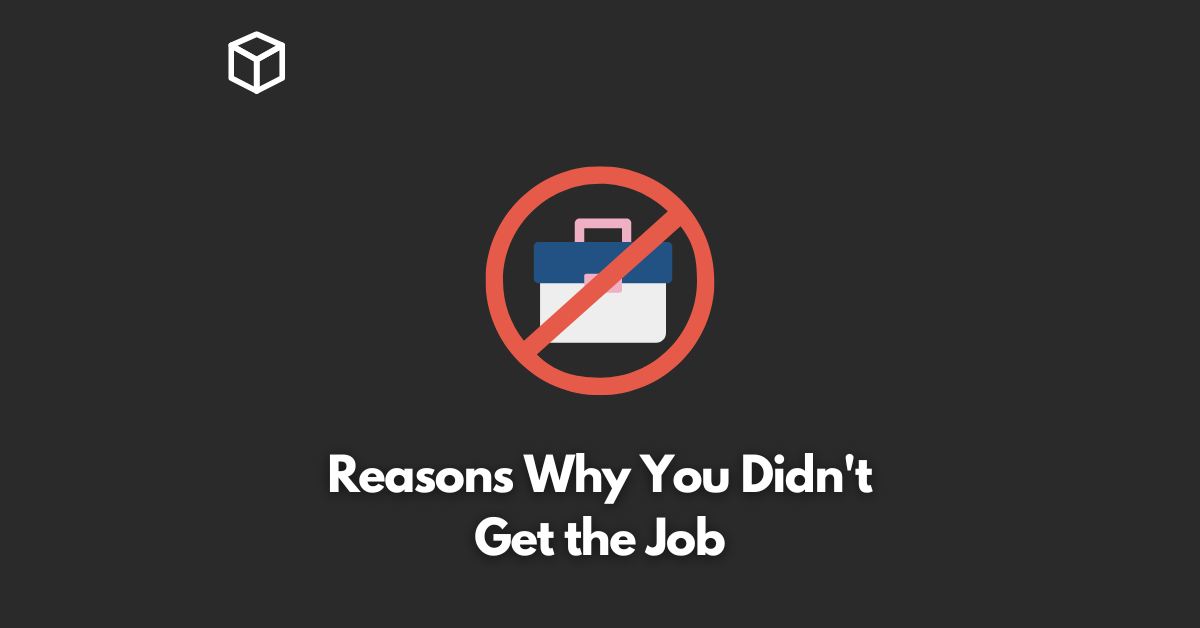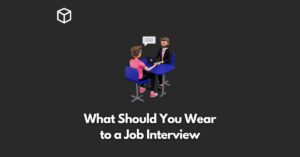Navigating the job market can be a daunting task for many, especially when job applications are met with rejection or silence.
The sting of not landing a job after investing significant time and effort in the application and interview process can be quite disheartening.
However, these instances also offer an opportunity to assess what might have gone wrong.
Understanding the possible reasons behind not securing a job is vital to fine-tune your job search strategy and avoid repeating the same mistakes.
Here are twelve probable reasons why you may have missed out on the job and how to remedy them.
1. A Generic Resume
Submitting a generic resume to numerous jobs might seem efficient, but it can significantly lower your chances of landing an interview.
Employers are looking for candidates who have thoroughly read the job description and have tailored their application to highlight the relevant skills and experiences.
A customized resume demonstrates an understanding of the job requirements and a genuine interest in the role.
Instead of sending out a boilerplate resume, make sure to align your skills and experiences with the job description.
2. Being Late for the Interview
Punctuality is a key professional attribute that potential employers will certainly consider.
Arriving late to an interview not only shows a lack of respect for the interviewer’s time, but it may also suggest potential reliability issues in the future.
Always plan to arrive early to allow for unexpected delays.
Keep in mind that first impressions matter, and showing up on time for your interview is the first step in creating a positive image.
3. Insufficient Experience
There are instances when enthusiasm alone is not enough. A lack of required experience can overshadow your interest and drive.
If you find yourself consistently falling short on experience, consider seeking additional training or volunteering opportunities to bridge the gap.
Most importantly, always ask for feedback when you are rejected from a role.
Constructive criticism can offer valuable insight into areas you can improve.
4. Overqualification
Having too much experience may sometimes work against you.
Employers may assume that you are overqualified, and thus your salary expectations may be higher than they can offer.
Or they might think you may not be interested in the role long-term.
To counter this, clearly express your reasons for applying to the role and be transparent about your salary expectations.
This communication will ensure there is no misunderstanding about your intentions.
5. Speaking ill of Past Employers
Badmouthing your previous or current employer during an interview is a big red flag for potential employers.
Even if your past experiences were less than stellar, it’s essential to maintain professionalism.
Try to focus on the skills and experiences you’ve gained and steer clear of personal grievances.
Remember, an interview is not a therapy session but a professional meeting to assess your fit for a role.
6. Incompatibility with Company Culture
A company’s culture is its lifeblood, influencing everything from day-to-day operations to strategic planning.
If an employer perceives that you’re not a cultural fit, they may opt for another candidate.
However, this is not always a negative outcome. You want to work in an environment where you can thrive and feel comfortable.
If you find yourself not being the right fit for a company’s culture, it could be a sign that you should focus on finding a place where you will be more compatible and successful.
7. A Rough Interview
Your performance during an interview plays a critical role in the hiring decision.
A bad interview day, whether due to waking up on the wrong side of the bed or not connecting with the interviewer, can cost you the job.
It’s essential to prepare thoroughly for your interview.
Research the company, practice answering common interview questions, and be ready to showcase your skills and qualifications confidently.
A well-prepared candidate is a compelling candidate.
8. The Job was Filled Internally
Occasionally, companies prefer promoting internal candidates to fill open positions.
It encourages employee loyalty and aids in maintaining company culture.
While this might be frustrating for external candidates, understand that this decision is usually not a reflection on your qualifications or interview performance.
When applying to companies with a known preference for internal promotions, temper your expectations and remain open to other opportunities.
9. Lack of Follow-up After Interview
Following up after an interview can give you a significant edge over other candidates.
A timely, professional follow-up message shows your continued interest in the role and your appreciation for the opportunity to interview.
It’s also another chance to reiterate why you are a strong fit for the position.
If you don’t follow up, you may come across as disinterested or unmotivated.
10. Inadequate Preparation
Preparation is key in any job search.
Being unprepared for an interview signals a lack of seriousness and commitment to the job.
This includes not only understanding the job requirements but also researching the company’s mission, vision, and values.
Your preparation should also cover anticipating and practicing responses to potential interview questions.
A well-prepared candidate exudes confidence and shows employers their commitment to the role.
11. Neglecting Soft Skills
Technical abilities and hard skills are important, but employers also value soft skills such as communication, teamwork, problem-solving, and adaptability.
If you neglect to display these skills in your application or interview, employers may question your ability to work effectively within a team and navigate the challenges of the role.
Highlighting your soft skills can set you apart from other candidates who may have similar technical qualifications.
12. Incorrect Attire
Your attire plays a significant role in creating your first impression.
Wearing inappropriate or casual clothing to an interview can signal a lack of professionalism and disrespect for the company’s culture.
Research the company’s dress code and make sure your attire aligns with it. When in doubt, err on the side of dressing more formally.
Conclusion
Securing your dream job involves more than just meeting the job’s technical requirements.
It encompasses several aspects, from tailoring your resume to preparing thoroughly for the interview and respecting the company’s culture.
While there could be various reasons you didn’t get the job, reflecting on these points can provide useful insights to improve your future job applications.
Remember, rejection is not a measure of your worth but a stepping stone to refining your job search strategy and improving your chances of landing the job next time.




